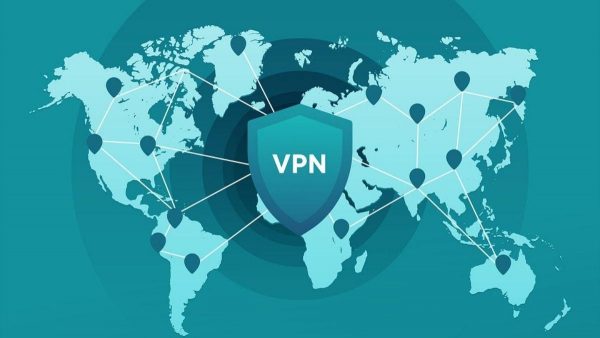
When we consider buying an online service, we always ask if it has a free trial first – especially if it has a recurring subscription. This is particularly true for VPNs, online tools that help us bypass censorship, secure our traffic, and unblock geo-restricted content and streaming sites.
You’d think all VPNs offer a free trial, but it’s actually the complete opposite. There aren’t many providers that do that. If you’d like to find the best VPNs that offer a free trial, we recommend following that link and reading ProPrivacy’s guide.
But if you’d like to learn more about VPNs and free trials, stick around a bit and read this article. We’ll talk about this topic more in-depth and answer some relevant questions.
So Should All VPNs Offer Free Trials or Not?
We can’t really offer a simple “yes” or “no” answer. It really depends on what your preferences are.
To start off, it’s pretty obvious why a free trial is always nice:
- You get to test-drive the service without paying upfront fees.
- You need not worry about being eligible for a refund.
- You can try out multiple VPNs at the same time and compare the best VPN services. It’s free, and you don’t need to pay multiple subscriptions.
On the other hand, a free trial isn’t really necessary if you already know which VPN you want to use, and the provider is transparent enough that you fully trust them (generous refund policy, third-party audits, no leaks, no logs, no shady Privacy Policies, etc.).
We’re sorry if the answer is a bit vague and not what you were expecting, but this is the truth if you want an objective opinion. We obviously love free trials, but they’re not a requirement if we’re already sure we found the right VPN.
Do Free VPN Trials Come with Limitations?
Not always. It depends on the provider. Some of them will give you full access to all their features (like PrivateVPN). Others might impose limits like:
- Not being able to use all the features (like built-in Smart DNS functionality);
- Slower speeds;
- Limited access to servers;
- Few simultaneous connections;
- No P2P support;
- No Tor over VPN support;
- Not being able to unblock streaming sites like Netflix and Hulu.
What’s the Deal with “Free 30-Day Trials?”
You’ve probably seen some VPNs saying you can get a “free 30-day trial” with their service. That sounds a bit too good to be true, so what’s the catch?
Well, it’s not exactly a trial – you still pick a subscription plan and pay for it. However, the VPN provider offers a no-questions asked 30-day money-back guarantee. That means that during the first 30 days of your subscription, you can ask for a refund for any reason. You don’t need to meet any requirements to be eligible for one.
So while the wording is vague and not exactly true, the offer holds up. You can get a 30-day free trial by asking for your money back before the refund period expires.
Sure, it might sound like a scam, but it really isn’t – as long as you use a legitimate VPN, that is. For example, ExpressVPN promotes their service through the 30-day free trial offer. And they’re one of the best VPNs on the market. Also, we tested out their money-back guarantee, and got a refund in just two days. And we didn’t have to go through any hoops to get it.
As for why VPNs use this phrasing, well let’s be honest – doesn’t “free 30-day trial” just sound appealing? It’s fantastic marketing that gets everyone’s attention.
Why Don’t All VPNs Offer Free Trials?
We couldn’t find any online article that discusses this topic, so we can only speculate. We did reach out to some of the top VPN providers on the market that don’t offer trials, and asked them why they don’t do that.
Basically, it all comes down to one thing – scammers.
Here’s the thing – most of you probably expect a free trial to not ask you for payment information (like your PayPal account or a credit card). Fair enough, we don’t like sharing that information either. But without it, VPN providers don’t have any way to make sure people won’t abuse their trials.
Someone could actually just keep signing up for a free trial over and over. They just need to use a free proxy or VPN to hide their IP, an anonymous email service like ProtonMail or Tutonota, and maybe a Virtual Machine to spoof device-related data.
If too many people do that, the VPN provider will just lose money. The damage could be so big that they would have to scale down their server network to save money, or shut down their service completely.
You can get a free trial (usually a seven-day one) on Android and iOS with most VPNs, though.
Here’s a quote we received from NordVPN that exemplifies this:
“Our free trial was heavily abused by scammers, it took a toll on our infrastructure and harmed our service in multiple ways.
Insignificant advantages provided by free trial were not enough to justify all major drawbacks, therefore we decided to remove it. However, free 7-day trial is still available on Apple and Play stores (via mobile devices).
We will always provide a 30 day money back guarantee, so everyone will be able to try out our service risk-free.”
How Do You Feel about Free Trials and VPNs?
Do you think all providers should use them, or are you fine with refund policies as long as the VPN is legit and the money-back guarantee is decent?
Please tell us your thoughts in the comments below.
 Gearfuse Technology, Science, Culture & More
Gearfuse Technology, Science, Culture & More


